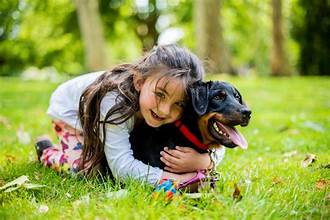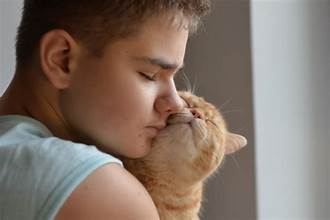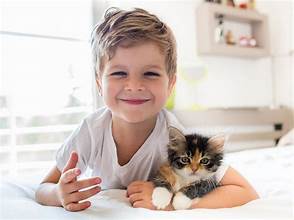Which Pet Is Best for an Autistic Child?
When choosing a pet for a child with autism, it’s not just about finding a cute companion—it’s about selecting a pet that will complement the child’s sensory needs, communication style, and emotional development. The right pet can provide comfort, routine, and even therapeutic benefits for children on the autism spectrum. But which pet is best?
Let’s explore the most suitable and supportive pets for autistic children and what to consider when bringing an animal into your special needs household.
Why Pets Are Beneficial for Children With Autism
Many families of autistic children have seen remarkable improvements in their child’s social skills, communication, and emotional regulation thanks to animal companionship. Pets offer:
- Nonjudgmental companionship
- Pets play a crucial role in providing a calming presence during sensory overload, offering reassurance and comfort to autistic children.
- Opportunities for responsibility and routine
- Improved communication and social engagement
The key is to match the pet’s temperament and care needs with the child’s personality, sensitivities, and developmental level.
Top 5 Best Pets for Autistic Children
1. Dogs – Especially Trained Service Dogs or Therapy Dogs
Best for: Children who benefit from emotional regulation, safety monitoring, and companionship.
Certain dog breeds—like Golden Retrievers, Labradors, and Poodles—are known for their gentle nature and trainability. Autism service dogs are specially trained to prevent wandering, provide deep pressure therapy during meltdowns, and encourage social interaction.

Pros:
Can be trained for specific autism support tasks
Provide safety and security
Help with routines and emotional bonding
Considerations:
- Requires daily walks, grooming, and consistent training
- Not ideal for children sensitive to noise or sudden movement
2. Cats – Calm, Independent Companions
Best for: Children who enjoy quiet affection and don’t want an overly active animal.
Cats can be incredibly soothing, offering warmth and comfort without the need for constant interaction. Breeds like the Ragdoll, Burmese, and Devon Rex are known for their gentle and affectionate demeanor.

Pros:
Low-maintenance compared to dogs
Ideal for kids who prefer quieter environments
Can bond deeply with a child
Considerations:
- Some cats can be aloof
- Allergies can be a concern.
3. Guinea Pigs – Gentle and Easy to Care For
Best for: Children who want a small, cuddly friend that doesn’t require a lot of space.
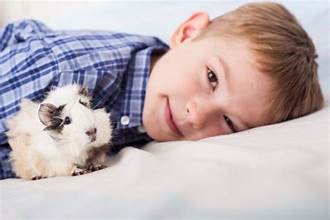
Guinea pigs are social, gentle, and rarely bite, making them a great first pet for autistic children. They enjoy being held and can be taught to respond to routines.
Pros:
Simple care needs
Calming to watch and hold
Can teach responsibility
Considerations:
- Need regular cage cleaning
- Better in pairs (social animals)
4. Fish – Visually Soothing and Low Interaction
Best for: Children with strong sensory sensitivities or who prefer visual stimulation over touch.
Watching fish glide through water can be incredibly calming for some children. Maintaining a tank also offers a sense of responsibility and routine.

Pros:
Calming visual stimulation
Minimal physical contact needed
Teaches routine (feeding, cleaning)
Considerations:
- Requires regular tank maintenance
- No tactile or emotional feedback from the fish
5. Rabbits – Affectionate but Quiet
Best for: Children who like soft textures and a quieter, loving animal.
Rabbits are known to form strong bonds with their owners and can be trained to use a litter box. They’re affectionate when handled gently and thrive in a calm environment.
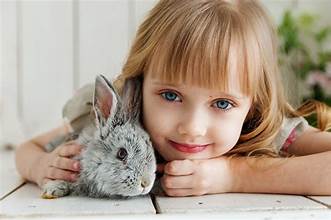
Pros:
*Quiet and soft
* Can learn to trust and bond deeply
* Provides comfort and routine
Considerations:
- Fragile and can startle easily
- Need supervised handling and a rabbit-safe space.
Tips for Choosing the Right Pet for Your Autistic Child
- Empower yourself by observing your child’s sensory preferences. Do they prefer physical touch or watching from a distance? This will guide you in making an informed decision when choosing a pet.
- Start with short, supervised interactions. Visit shelters or petting zoos to gauge comfort levels.
- Consider allergies and sensitivities.
- Involve your child in the decision. Give them a sense of choice and responsibility.
Final Thoughts: The Best Pet Depends on the Child
There’s no one-size-fits-all answer to the question “Which pet is best for an autistic child?” The best pet is one that aligns with your child’s needs, your family’s lifestyle, and the level of care you’re prepared to provide.
Whether it’s a loyal dog, a soothing fish, or a snuggly guinea pig, the right pet can become a cherished member of the family—and a robust support system for your autistic child.

